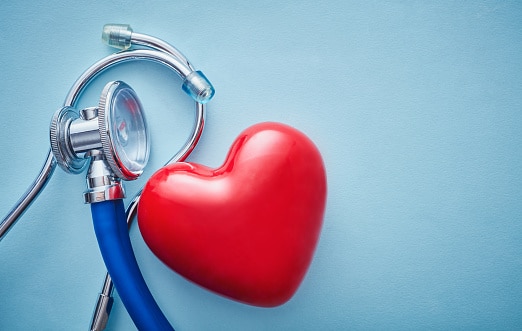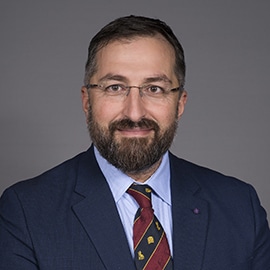
Despite what it might feel like, we’re still early on in the COVID-19 pandemic, so we don’t know yet what the long-term impacts of the virus will be. As a cardiac surgeon, I am worried about what COVID-19 is doing to heart cells.
Studies show the virus is attacking heart cells similar to what it’s doing to lung cells, and that doesn’t surprise me. Everything is connected. When you have sick lungs, you will likely have a sick heart. I am expecting to hear that some COVID-19 survivors will have weakened hearts as a result of the virus.
Heart disease is the leading cause of death in the United States. Many people with heart disease have other medical conditions, like obesity, high blood pressure and diabetes which also increase the risk of a severe struggle with COVID-19.
We have seen COVID-19 increase blood clotting in some patients, which is another heart-related worry. Blood clots limit or block blood flow and can cause heart attack and stroke.
At UofL Health, we have used extracorporeal membrane oxygenation, or ECMO, as a treatment for some of the sickest COVID-19 patients. ECMO is a machine that pumps a patient’s blood outside the body, oxygenates it and then returns it to the patient. It’s a life-saving technique that temporarily fills in for the heart and lungs when those organs are unable to fulfill their intended functions. ECMO is a last resort and is only used when a ventilator is no longer helping a patient.
Although we don’t have a clear picture yet of what COVID-19 is doing to people’s hearts during and after infection, we know the virus is attacking the lungs. Your heart and lungs work together to provide oxygen and blood flow to each other, so it does seem likely COVID-19 will impact the heart directly or indirectly.
If you have heart disease, you need to take the risk of COVID-19 seriously. Here are some tips to stay healthy during the pandemic:
- Follow the guidelines. Wear a mask when you’re out in public, wash your hands often and maintain distance from people.
- Keep up with your medications. You should never stop your prescribed medication without talking with your doctor, this is true during COVID-19, too. Keep up with your prescriptions. You can have prescribed medications delivered to your home or brought out to your car.
- Do not put off care. If you’re having chest pain, palpitations or any other symptoms that are worrying you, don’t delay medical care. Emergency rooms are safe. Do not delay treatment because you’re scared of COVID-19. You do not want to die of heart failure because you were too worried to come to the hospital.
- Eat healthy and exercise. Do not let social distancing or quarantine ruin your healthy lifestyle. Continue to eat fruits, vegetables and other healthy foods. Make sure you’re getting in 20 to 30 minutes of exercise each day, even a short walk around your neighborhood is better than nothing!
To learn more about cardiovascular medicine at UofL Health, click here.









